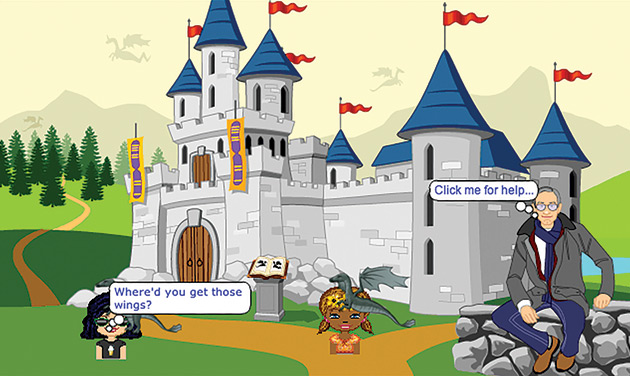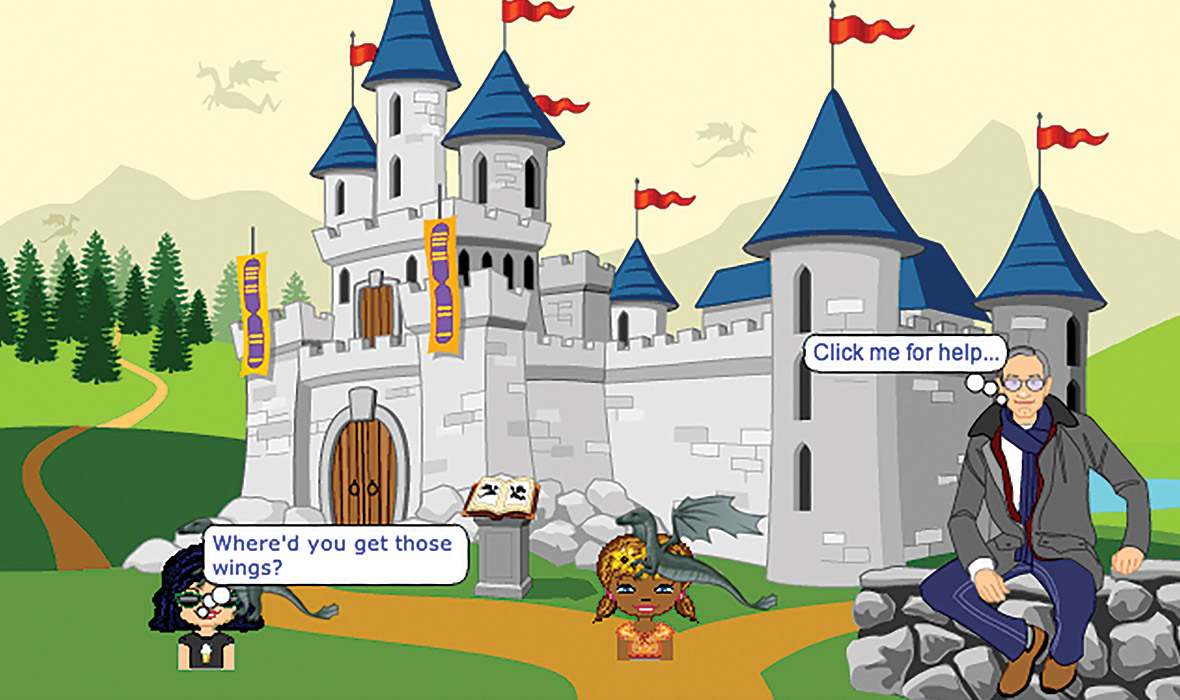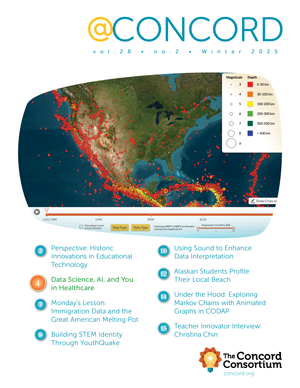Monday’s Lesson: Dragons in Social Media
The power and appeal of social media like Facebook and Twitter is tremendous, especially to young minds. We’ve found a way to harness that fascination and turn it to learning!

Whyville is a popular social networking environment intended to give tweenagers (the typical “Whyvillian” is 8-15 years old) the opportunity to learn STEM concepts through collaboration and exploration. In a project we call “GeniVille,” we incorporated Geniverse, a Concord Consortium computer program designed to teach genetics, into Whyville.
The genetics game in Whyville consists of increasingly difficult challenges involving breeding dragons for traits that help them retrieve specific treasures. For instance, a winged dragon can fly up to snatch a coconut from the top of a tree, while a dragon with arms, legs and a spike on its nose can dig for a magic chalice. Whyvillians create such dragons through selective breeding, and proudly “own” them as pets, but only if they have mastered the underlying genetics.
The dragon activities in Whyville were designed for children working unsupervised, but they are also a valuable adjunct to a middle school life science unit on genetics. The content is aligned to the Next Generation Science Standards (NGSS) for heredity: inheritance and variation of traits. We can’t think of a better place to take a virtual field trip— and admission is free!
How to prepare
It’s easy! If you’re a first-time user, go to the Concord Consortium GeniVille website, and then follow the Whyville link to register as a teacher by clicking the Join Now button. Once Whyville verifies you as a teacher, you’ll have access to a personalized URL where your students can register. Their accounts will be tied to you in your Class Roster.
If you’ve already started Mendelian genetics in class, head straight to the Dragon Castle using the Destination dropdown menu on the lower left of the Whyville home page. Otherwise, begin with a brief overview of chromosomes, genes and traits.
Field Trip: Day 1
Have students log onto their own computer, go to the Dragon Castle and begin with the Tutorial. Then, working in pairs, students should go to the Dragon Book (linked from the Tutorial or accessible from the student’s satchel icon at the top of the screen) and try the first three challenges, where they explore the inheritance of simple dominant and recessive traits. Students can move through the different dragon lairs together, scoping dragon chromosomes and searching for the alleles they need to produce a winning dragon. Encourage them to chat— online and in person—about their choices.
If students get stuck, have them visit the labs in the Dragon Book. In these game-like activities, students can change a dragon’s genotype and see its phenotype change or watch meiosis in action. The labs help students learn how to identify lair parents with the gametes needed to produce treasurehunting offspring. When students return from their field trip by logging out of Whyville, start a class discussion on dragon traits and how they are inherited.
Field Trip: Day 2
Students return with their buddies to Whyville, ready for more advanced challenges focused on incomplete dominance, sex linkage and polyallelic traits. There are 9 lairs and 21 labs for experimentation and inquiry.
Your students can become Whyvillian dragon geneticists and discover that social media and STEM learning go hand in wing. Join them, and let us know how their online adventures go. Send your feedback to dragons@concord.org.
Trudi Lord (tlord@concord.org) is GeniVille project manager.
Paul Horwitz (phorwitz@concord.org) directs the GeniVille project.
This material is based upon work supported by the National Science Foundation under grant DRL-1238625. Any opinions, findings, and conclusions or recommendations expressed in this material are those of the author(s) and do not necessarily reflect the views of the National Science Foundation.

